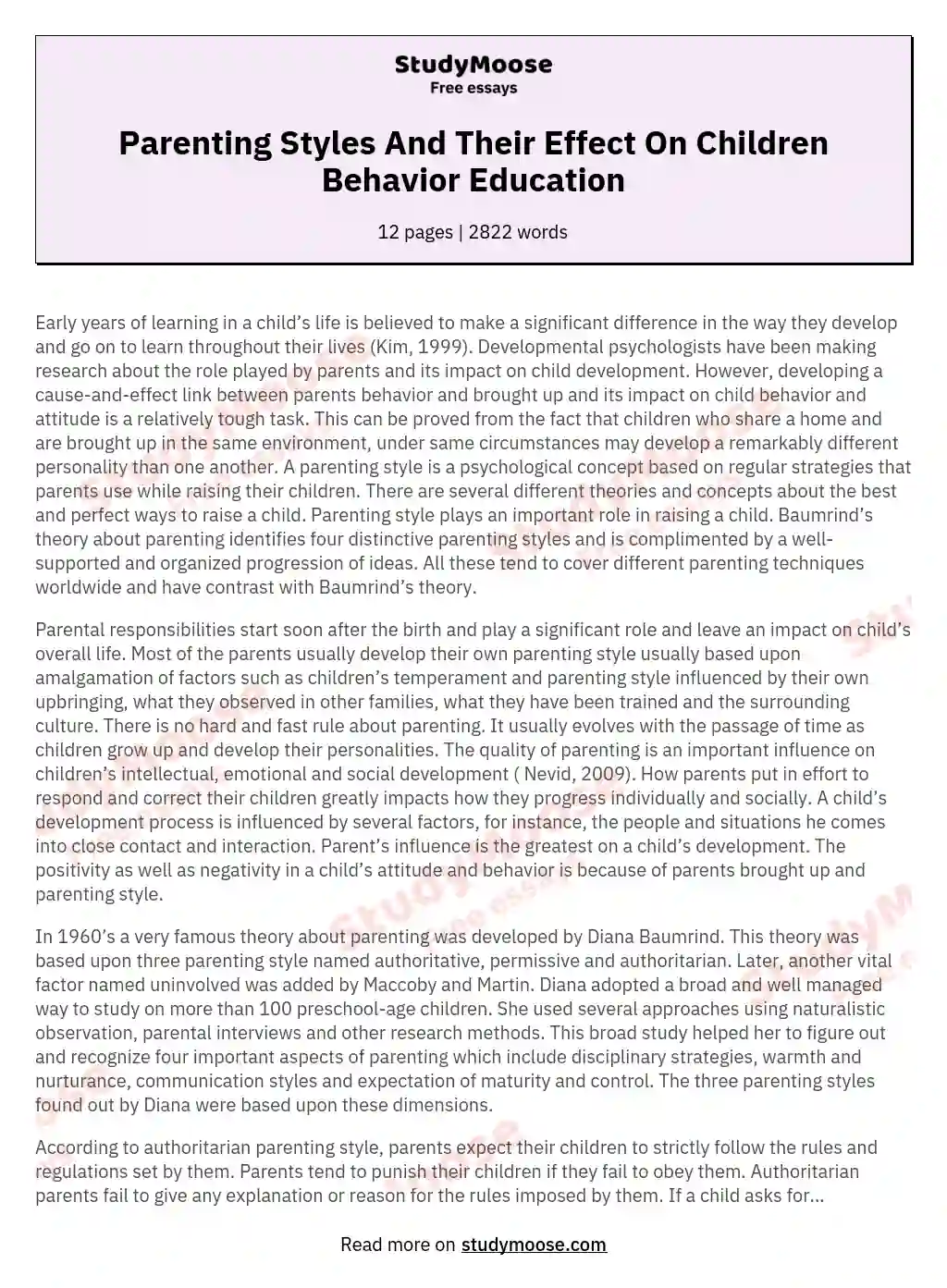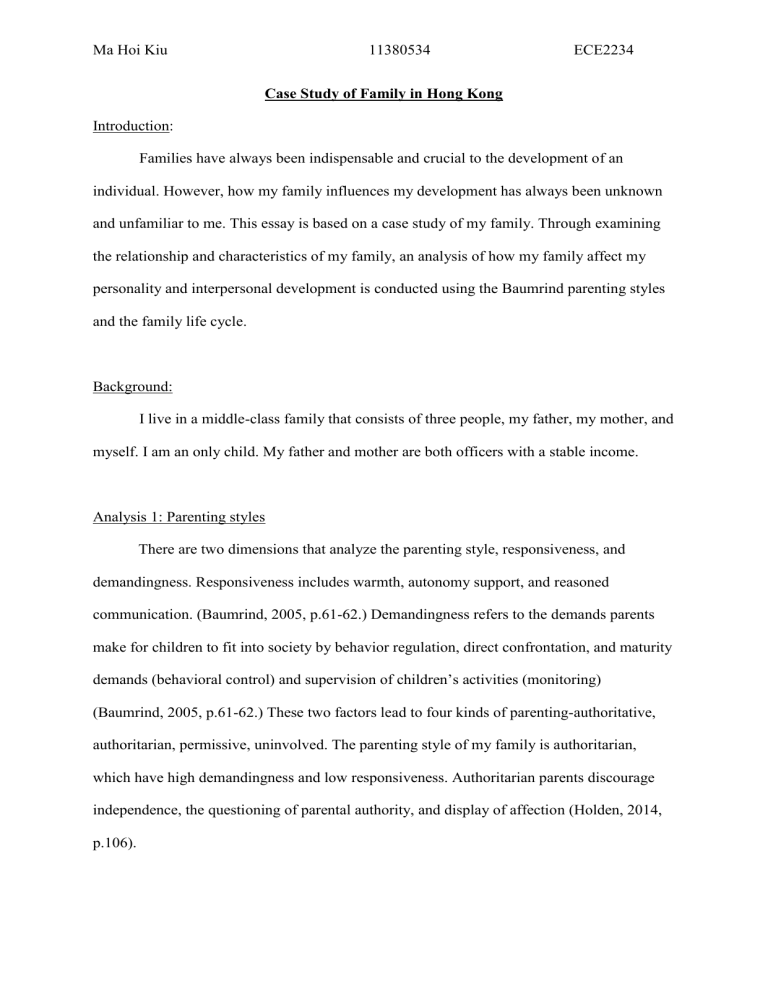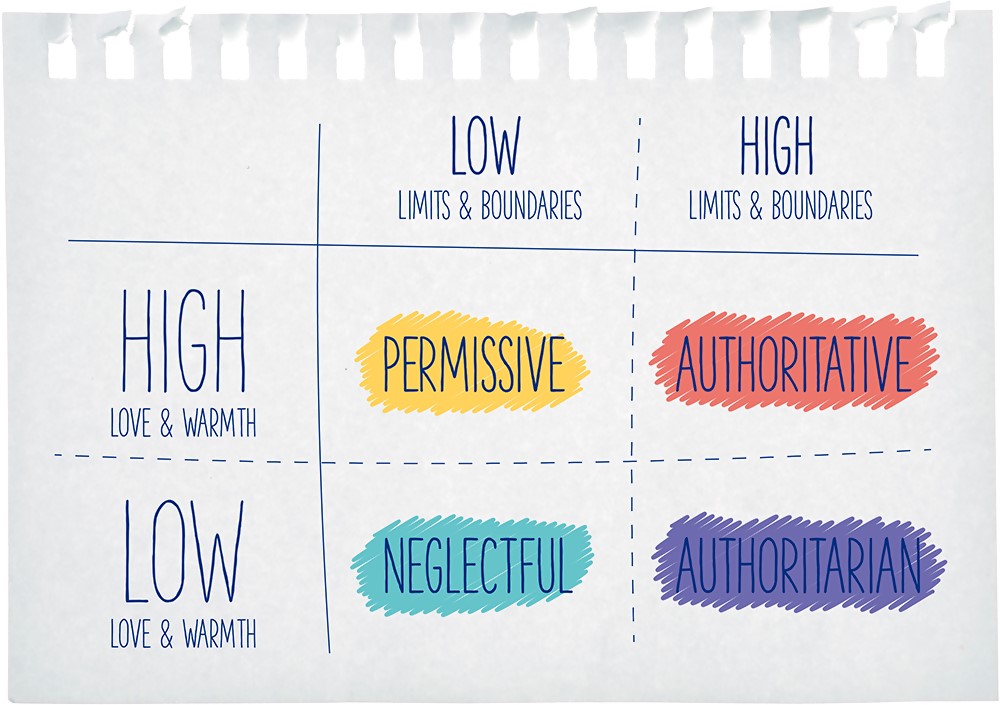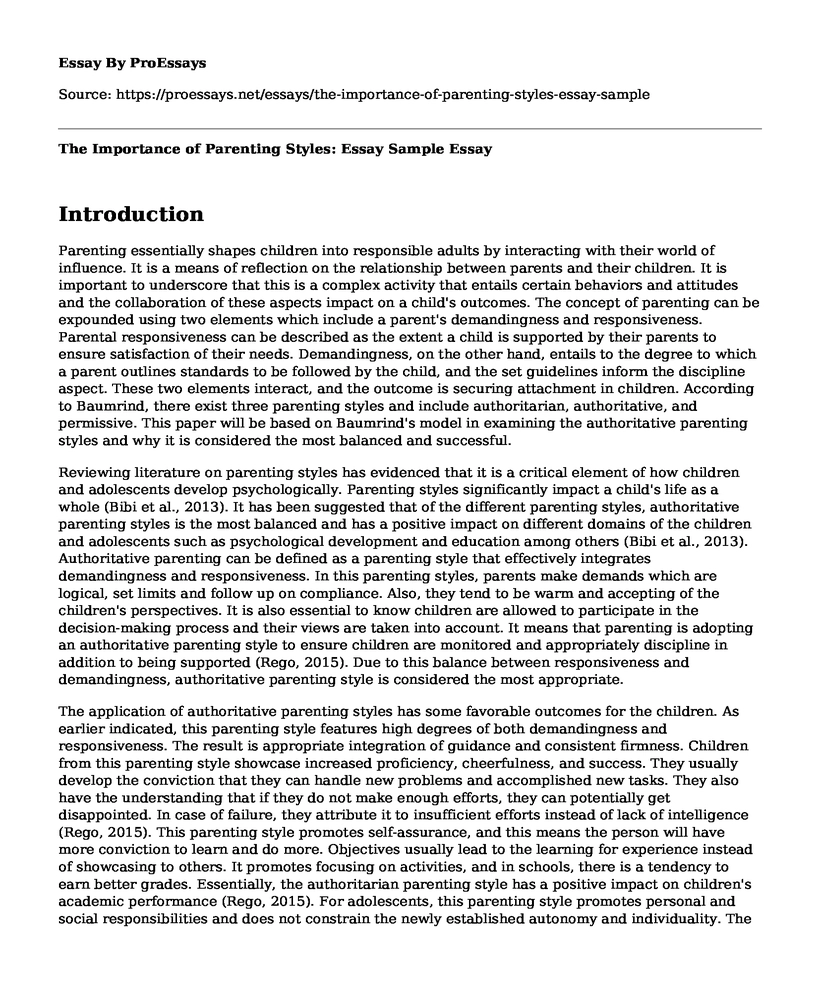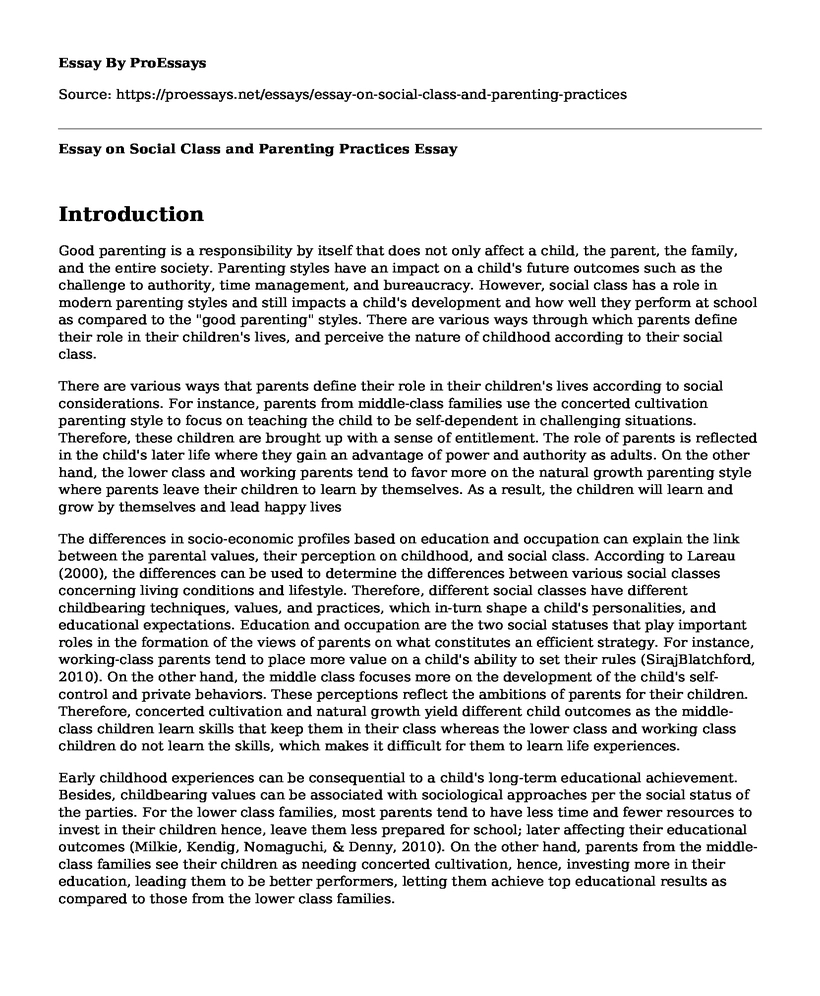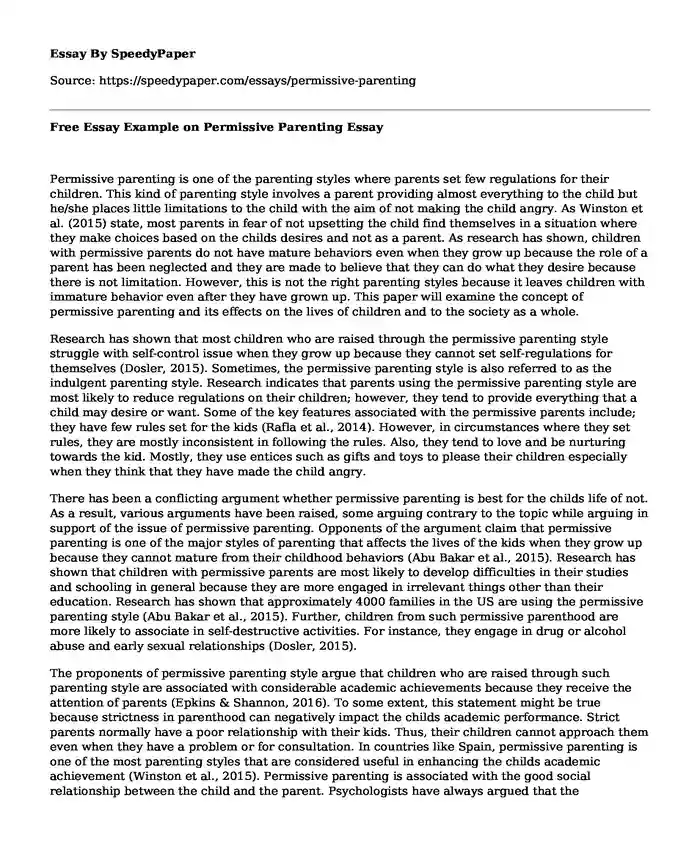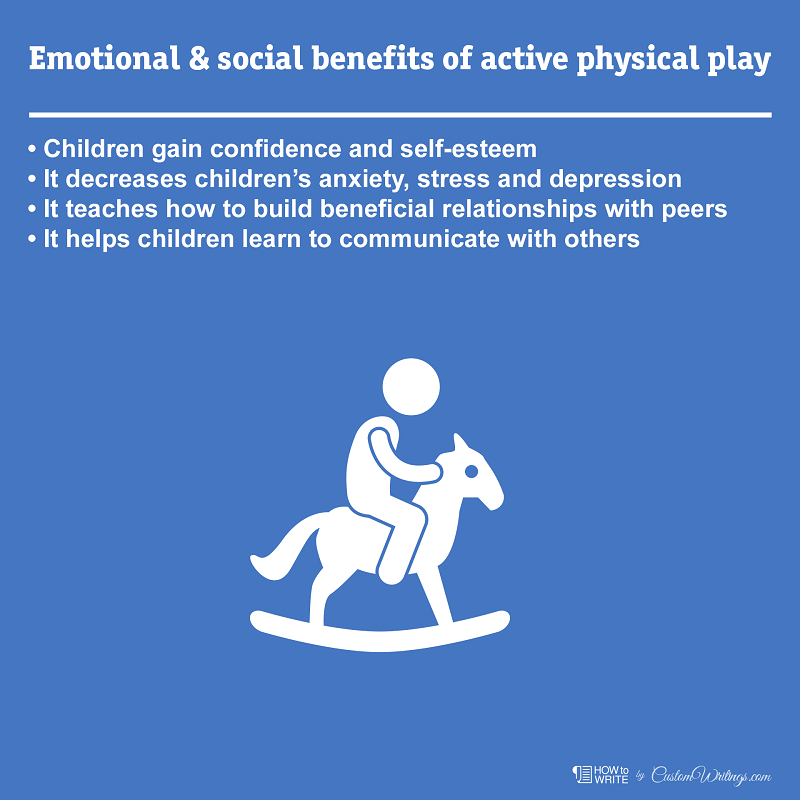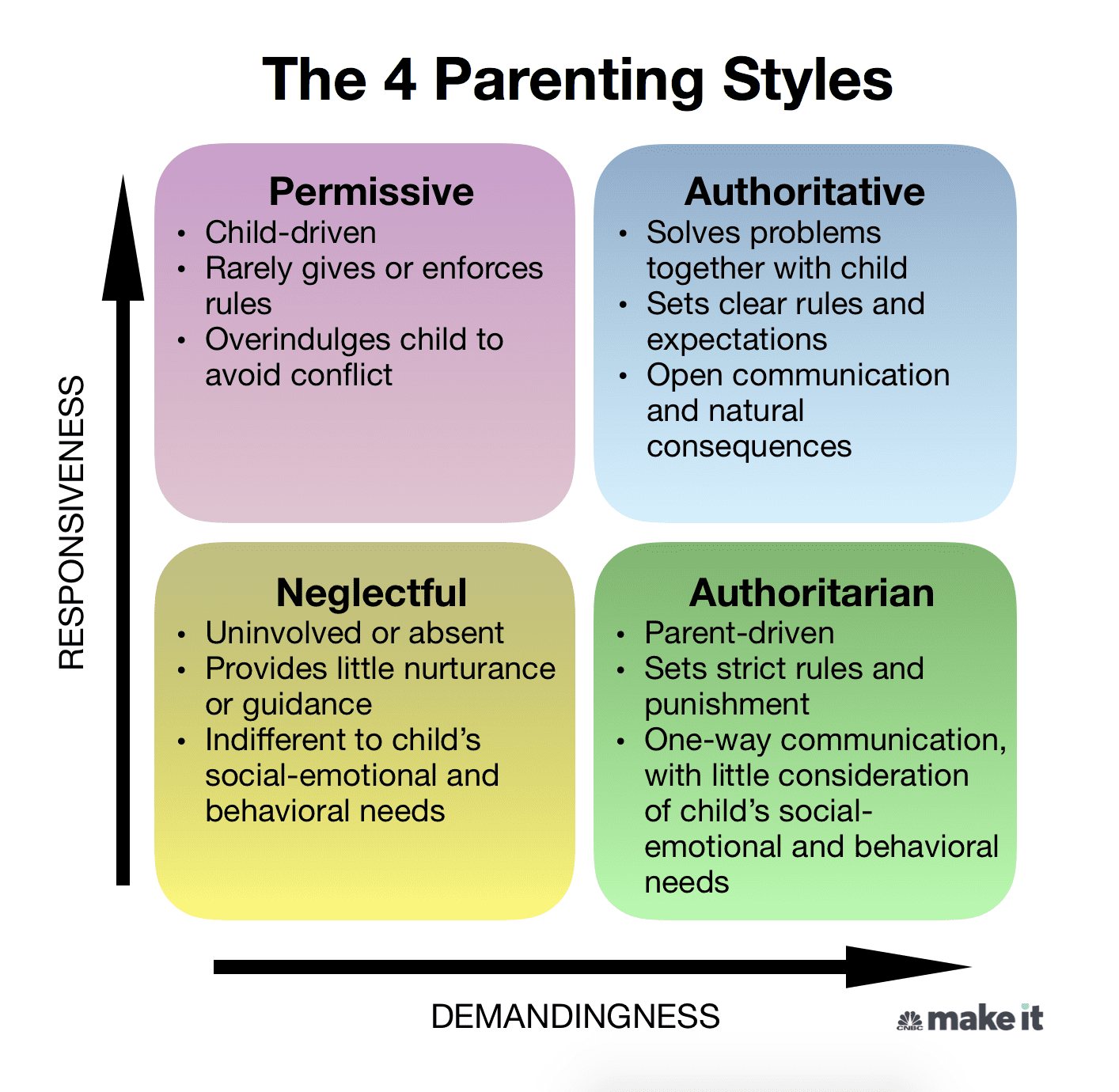Parenting styles are the ways in which parents interact with and raise their children. These styles can have a significant impact on a child's development, influencing their behaviors, attitudes, and even their academic performance. There are several different parenting styles that have been identified, each with its own unique characteristics and potential effects on children. In this essay, we will explore some of the different parenting styles and their potential impacts on child development.
One common parenting style is authoritarian parenting, in which parents set strict rules and expect their children to follow them without question. Authoritarian parents may be strict disciplinarians, using punishment to enforce their rules. While this style of parenting can be effective in promoting obedience and respect for authority, it can also have negative impacts on a child's development. Children raised by authoritarian parents may struggle with low self-esteem, poor social skills, and a lack of independence and creativity.
Permissive parenting, on the other hand, is characterized by a lack of rules and structure. Permissive parents may be more lenient and accepting of their children's behavior, even when it is inappropriate. While this style of parenting may seem more nurturing and supportive, it can actually be harmful to children's development. Children who are raised by permissive parents may have difficulty with self-regulation, responsibility, and decision-making skills. They may also be more prone to engage in risky or inappropriate behaviors.
Another common parenting style is authoritative parenting, which is a balance between the authoritarian and permissive styles. Authoritative parents set rules and expectations for their children, but also encourage independence and open communication. They are responsive to their children's needs and emotions, and allow for negotiation and decision-making within certain limits. This style of parenting has been shown to be the most effective in promoting healthy child development. Children raised by authoritative parents tend to have high self-esteem, good social skills, and are able to handle challenges and make good decisions.
Finally, there is the neglectful parenting style, in which parents fail to provide for their children's basic needs or provide emotional support. Neglectful parenting can have serious and long-lasting effects on a child's development, including problems with physical, emotional, and cognitive development. Children who are neglected may struggle with attachment issues, low self-esteem, and poor social skills.
In conclusion, parenting styles have a significant impact on child development. It is important for parents to be aware of their own parenting style and its potential effects on their children. By adopting an authoritative parenting style, parents can help their children grow into healthy, well-adjusted individuals.
